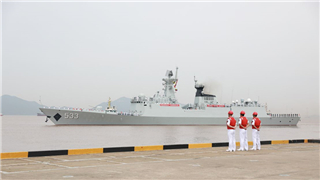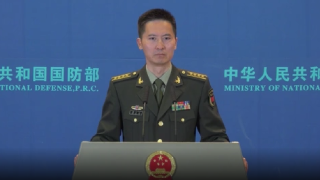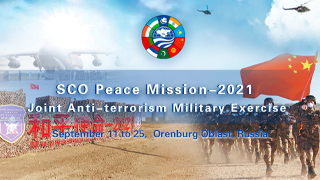The Chinese Foreign Ministry said on Friday that U.S. Secretary of State Antony Blinken's speech on policy toward China spread false information, exaggerated the "China threat," interfered in China's internal affairs and smeared China's domestic and foreign policies.
China has expressed strong dissatisfaction and firm opposition to the speech, Foreign Ministry spokesperson Wang Wenbin told a press briefing.
"Secretary Blinken said that the U.S. would not seek conflict or a 'new cold war' with China and would like to live in peace with China, we will wait and see," the spokesperson added.
Since the interests of all countries are closely linked now, the U.S. cannot solve its own problems by advocating the "threat posed by China". Instead, it will lead the world into a dangerous abyss, Wang said.
Noting that the U.S. claims that China is the most serious long-term challenge to the international order, Wang said that as a staunch defender of the international order, China has always maintained that all countries should firmly uphold the international system with the UN at its core, the international order based on international law, and the basic norms governing international relations based on the purposes and principles of the UN Charter.
When talking about human rights and democracy, Wang said that facts have proven time and again, the U.S. is in no position to be a human rights defender, still less a condescending lecturer.
The paths of democracy and human rights, values shared by all human beings, should be explored in light of each nations' conditions and the needs of their people, he said.
Wang then pointed out that China believes that relationships between each country should be based on equal treatment, mutual consultation and mutual understanding and the future of the world should be jointly controlled by all countries. The "Indo-Pacific Strategy" launched by the U.S. is a typical form of gang-building, which is doomed to failure.
Advocating and practicing the Five Principles of Peaceful Coexistence, China is committed to establishing and developing friendly relations and cooperation with all countries. The United States, the inventor and synonym of "coercive diplomacy", is used to bullying and inflicting great harm on the international community. It is high time that America changed its old habit, the spokesperson said.
Issues related to Taiwan, Xinjiang, Hong Kong and Tibet are China's internal affairs. We urge the U.S. side to abide by the basic norms governing international relations and not to underestimate the firm will of the Chinese people in safeguarding national sovereignty and territorial integrity, Wang reiterated.
To get the bilateral relations out of the current predicament, the key lying in the U.S. side is ceasing its zero-sum competition and stopping words and deeds that undermine the China-U.S. relations, Wang said.
Considering that the China-U.S. relations are at an important crossroads, the U.S. should bear in mind the common interests of the people of the two countries, which can help make a right choice, Wang said.











